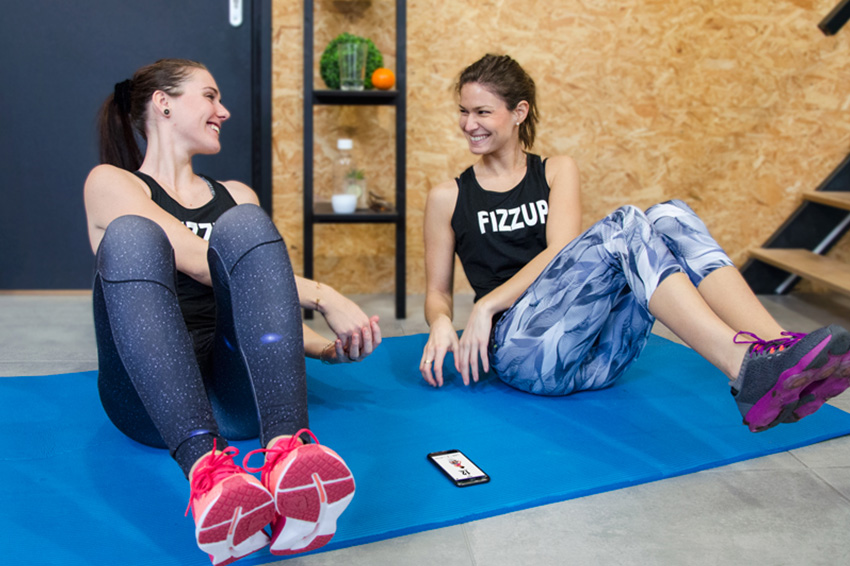Having self-confidence isn’t a given for everyone. A lack of it can hinder your quality of life, hurt your relationships with others and make it hard to take action. The FizzUp trainer explains where this lack of self-confidence comes from and what you can do to give it a boost. If you follow his advice, it can change your life completely!

Confidence is defined as the feeling and action of trusting someone. “Action” implies that a person makes a decision that’s intended for the person themself. But self-confidence also depends on your relationship with other people and events. It has three dimensions, as French psychiatrist and psychotherapist Frédéric Fanget distinguishes in his book Daring to Dare: self-esteem, self-confidence and self-assertion.
These three dimensions of trust are like a pyramid of glasses full of champagne. When you fill the top glass, soon all the glasses will overflow and fill the other glasses below. The more you’re able to make others respect your needs and decisions (self-assertion), the better you’ll be able to cultivate your self-confidence and boost your self-esteem.
Using Frédéric Fanget’s book, the FizzUp trainer is giving you the keys to help you boost your self-confidence.
Learn how to be your own judge to get back your self-confidence. For instance, write down all your actions, thoughts and emotions that are related to one another in a journal. In a chart, use the first column to clearly describe a time when you didn’t feel confident in yourself. Be specific about where, when, how and with whom it happened. In the second column, write down the emotions you felt and rate how intense they were on a scale of 1 to 10. In the third column, write down any thoughts that automatically crossed your mind at that given moment.
This journal will help you look at your automatic thoughts and realize that what’s happening to you isn’t what’s causing your feeling of uneasiness. It’s directly linked to how you interpret different situations. Try to change the way you experience them, because self-criticism can be destructive. Positive thinking can help you let go of guilt.
Taking action is vital if you want to build self-confidence. Turn your grievance into goals. If you dislike your physique and it causes negative self-talk, then start working out on a regular basis with FizzUp to put an end to your lack of self-confidence. Also listen to and accept compliments from others, instead of paying attention to just your flaws.
Learn to set your biases aside by looking at failure from another angle. You learn by making mistakes. Failure helps you progress when it forces you to analyze the reasons why it happened so that you can make it easier to bounce back by reacting accordingly. You’re constantly evolving, which is not a given for people who always succeed.
Daring to be assertive about your needs and desires is important. But when you lack self-confidence, you avoid talking about certain needs that are essential to you. Telling others about your needs helps you gain respect from them and respect from yourself. Forget about preconceived notions and express yourself instead of being scared of how other people will react. In his book, Fanget talks about the MEEPP method that will help you to help you communicate with others.
M is for “Me”: When you ask for something, include “me” or “I” in the sentence: “I would like,” “Can you do something for me?,” etc.
E is for “Empathy”: Take the other person into consideration without being aggressive.
E is for “Emotion”: Take your emotions and others’ emotions into consideration.
P is for “Precision”: Ask for exactly what you need.
P is for “Persistence”: Repeat your need using empathy.
Never forget to end on a positive note, even if you didn’t come to an agreement. The more you’re able to come into direct contact with others and clearly express what you feel or want, the easier it will become. You’ll be surprised to see that other people’s reactions aren’t what you were expecting. They’ll be understanding, attentive and maybe even surprised to finally hear you express yourself.
If you want to build self-confidence, there are many actions you can take to help you get there. Acknowledge your qualities that make you extraordinary and unique.
Join the 7 million users already registered on FizzUp
Join us